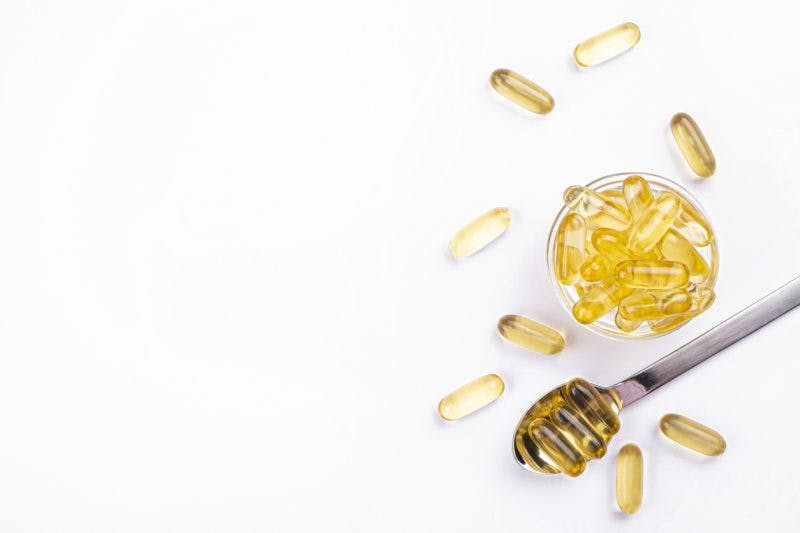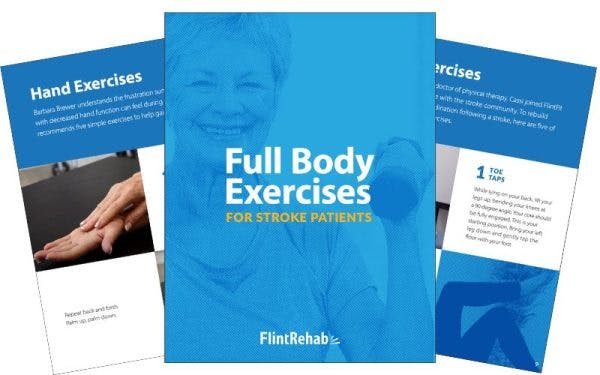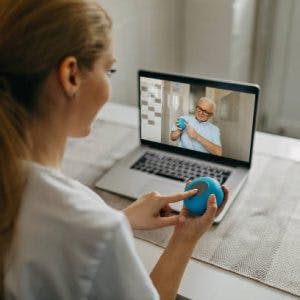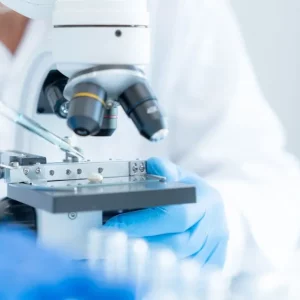Curious whether omega-3 supplements can actually support stroke recovery? You’re not alone. While these healthy fats are often praised for their heart and brain benefits, their role in stroke rehabilitation is still being explored. In this article, we’ll break down what omega-3s are, review the latest research on their potential impact after a stroke, and share a list of omega-3-rich foods to help you naturally increase your intake.
Use the links below to jump to any section that interests you.
- What are omega 3 fatty acids?
- Can Omega 3 Prevent Stroke?
- Omega 3 for Ischemic vs. Hemorrhagic Stroke
- Research Regarding Omega 3 for Stroke Recovery
- Mechanisms Behind Omega 3 for Stroke Recovery
- Foods Rich in Omega 3
- How Much Omega 3 Is Safe to Take?
- Should You Take Omega 3 After a Stroke?
What Are Omega 3 Fatty Acids?
Omega 3 fatty acids, often referred to as omega 3s, are a type of polyunsaturated fatty acid. These “good” fats provide energy and support many systems of the body, including the cardiovascular, pulmonary, immune, and endocrine systems.
The brain, sperm, and retina of the eyes contain high levels of omega-3s. Additionally, omega-3s form part of the membrane that surrounds every cell in the body. Since omega 3s play so many vital roles in the body, maintaining adequate omega 3 levels is crucial.
There are multiple types of omega 3 fatty acids, including:
- alpha-linolenic acid (ALA)
- eicosapentaenoic acid (EPA
- docosahexaenoic acid (DHA)
- docosapentaenoic acid (DPA)
The body uses ALA to produce other types of omega-3 fatty acids, but it must obtain ALA from foods or supplements since it cannot produce it on its own. Only very limited quantities of ALA are converted however, with less than 21% of ALA being converted to EPA, DHA or DPA.
Therefore, in order to boost omega 3 levels, it is essential to consume foods with high omega 3 content, such as fish and flaxseed. While omega 3 supplements are available, it is best to gain omega 3s directly from dietary sources. Although it is possible to have an omega 3 deficiency, this is very rare in the United States.
Important: Because high levels of omega 3s may have a blood thinning effect, it is critical to check with one’s doctor before starting omega 3 supplements. Healthcare providers may recommend that individuals avoid omega-3 supplementation if they have a history of hemorrhagic stroke, a blood disorder, or are taking anticoagulant medications (blood thinners).
Can Omega 3 Prevent Stroke?
In addition to stroke recovery, many people wonder whether omega 3s can help prevent a stroke in the first place. Research suggests that omega 3 fatty acids—especially EPA and DHA—may lower the risk of ischemic stroke by reducing blood pressure, inflammation, and plaque buildup in the arteries.
A large meta-analysis published in the journal Stroke found that higher levels of fish consumption (a major source of omega 3s) were associated with a modestly reduced risk of stroke. However, the evidence is mixed. Some studies found no significant protective effect of omega 3 supplementation, while others noted a reduced risk of certain cardiovascular events.
It’s important to note that omega 3s may not be equally protective across all populations or stroke types. For example, individuals with high triglyceride levels or a history of heart disease may benefit more from omega 3 intake than those with low baseline risk.
Furthermore, some studies suggest that fish oil supplements (rich in omega 3s) may actually increase the risk of stroke or atrial fibrillation when used regularly by those without pre-existing cardiovascular conditions. In these cases, it may be more beneficial to focus on a healthy, well balanced diet with natural sources of omega 3s, such as flaxseeds and fatty fish.
Omega 3 for Ischemic vs. Hemorrhagic Stroke
Omega 3s are often studied in the context of ischemic stroke, which occurs when a blood clot blocks a vessel in the brain. Due to their anti-inflammatory and anti-thrombotic effects, omega 3s may offer protection and support recovery in these cases.
However, the relationship between omega 3s and hemorrhagic stroke (caused by bleeding in the brain) is more complex. Since omega 3s have mild blood-thinning properties, excessive intake—especially through high-dose supplements—could theoretically increase the risk of bleeding. This is particularly important for individuals taking anticoagulant medications or with a history of hemorrhagic stroke.
Because of these differences, healthcare providers should always tailor stroke prevention and recovery plans involving omega-3s to the individual’s stroke type and medical history. Always talk with your doctor before beginning any new supplements to ensure it is safe for your specific situation.
Research Regarding Omega 3 for Stroke Recovery
Researchers have conducted a number of studies on the use of omega-3s for stroke recovery. While most studies suggest that increasing omega-3 levels can boost recovery, they are still examining the underlying mechanisms.
The following is an overview of recent studies looking at the efficacy of omega 3 for stroke recovery:
- One study published in 2021 revealed that long-term ALA dietary supplementation improved outcomes following ischemic stroke in mice. It was also concluded that ALA supplementation can reduce inflammation and impairments in the blood brain barrier.
- A 2020 study found that taking 1 gram of omega 3s daily prior to having a stroke lowered the risk of functional limitations and physical disability after a stroke. However, these improvements were not statistically significant.
- A 2019 study on mice found that administering omega 3s after stroke improved neuronal survival and adaptative rewiring within the brain, both of which are important for stroke recovery.
- Research from a 2019 study involving over 8,000 individuals found that taking icosapent ethyl, a purified form of EPA, resulted in a lowered risk of ischemic events such as stroke.
- The American Heart Association published a 2019 study that reported omega 3 supplementation lowers the risk for cardiovascular disease, coronary heart disease, myocardial infarction. However, it was noted that taking supplemental omega 3s did not reduce the risk of stroke.
- A 2022 systematic review of 30 randomized controlled trials on the effects of omega 3 for stroke recovery found that there was insufficient evidence to accurately determine the effects of omega 3s. Furthermore, there has been limited research regarding the optimal dosages, delivery form, and mode of administration of omega 3.
It is also important to note that different omega 3s have been shown to have different characteristics. Thus, each type of omega 3 may have a different effect on stroke.
For example, one study determined that higher DPA and DHA levels are associated with a reduced risk of ischemic stroke, while EPA levels are not. Another study found that taking EPA was associated with reduced cardiovascular events, while consuming EPA and DHA together did not have this effect.
Taking the results of these studies into account, it does appear that omega 3s could improve stroke recovery. However, it is evident that more research is needed.
Mechanisms Behind Omega 3 for Stroke Recovery
While it cannot be stated with certainty that omega 3s promote stroke recovery, they have a number of favorable characteristics that may serve as mechanisms for boosting recovery. Omega 3s can lower cholesterol levels and have remarkable antioxidant and anti-inflammatory effects, as well as anticoagulant properties. These characteristics may reduce the risk of stroke and improve stroke outcomes.
Notably, omega 3s have also been reported to prevent the loss of brain cells and promote the restoration of white matter in the brain. This is significant because stroke recovery revolves around the process of neuroplasticity: rewiring the brain to encourage healthy parts to take on the functions damaged by stroke.
If omega 3s can help prevent further deterioration of the brain and promote recovery of brain tissue, it is likely that they could promote stroke recovery. However, it is always important for individuals to talk with their doctor about major dietary adjustments or dietary supplements before making any changes.
Foods Rich in Omega 3
Individuals looking to increase their omega 3 consumption for stroke recovery should focus on eating foods rich in omega 3s. Here are some of the healthiest foods that contain omega 3, starting with the most potent:
- Flaxseeds
- Walnuts
- Salmon
- Beef
- Soybeans
- Shrimp
- Brussel sprouts
A number of diets, such as the heart-healthy Mediterranean diet, incorporate many of these omega 3 rich foods. While natural sources of omega 3 are best, some individuals may benefit from supplementation to enhance the benefits of omega 3 for stroke recovery. However, it is essential that individuals discuss any major dietary changes or new supplements with their doctor in order to rule out any contraindications.
How Much Omega 3 Is Safe to Take?
There’s no universal dosage of omega 3 that guarantees stroke prevention or recovery. However, general guidelines suggest:
- 250–500 mg/day of combined EPA and DHA for healthy adults.
- 1,000 mg/day or more may be recommended for individuals with elevated triglycerides or cardiovascular risk, under a doctor’s supervision.
The FDA considers up to 3 grams per day of EPA and DHA combined from supplements to be safe for most people. That said, higher doses can increase the risk of bleeding or interact with medications, so it’s important to follow professional guidance when supplementing.
For stroke survivors or those at risk, a personalized approach based on lab results, diet, and medication use is key.
Should You Take Omega 3 After a Stroke?
If you’re recovering from a stroke, omega 3s may support brain healing, reduce inflammation, and promote neuroplasticity—but they aren’t a cure or replacement for medical treatment. They work best when combined with other recovery strategies like physical therapy, a balanced diet, and appropriate medications.
Omega 3s might be especially helpful if your diet is low in fatty fish or other sources of healthy fats. However, stroke survivors—especially those on blood thinners—should avoid starting omega 3 supplements without medical clearance due to potential bleeding risks.
In short, omega 3s can be a helpful piece of the recovery puzzle—but always check with your care team before making any changes.
Omega 3 and Stroke Recovery
Omega 3 fatty acids are critical for brain health and show promising benefits for stroke recovery. While many studies are favorable, more research is still needed to fully understand the effects of omega 3s on stroke recovery.
Obtaining omega 3s through food is ideal, but supplementation may be recommended for some individuals. Before making any major dietary adjustments or adding supplements, always talk about the benefits and potential contraindications with your doctor.










